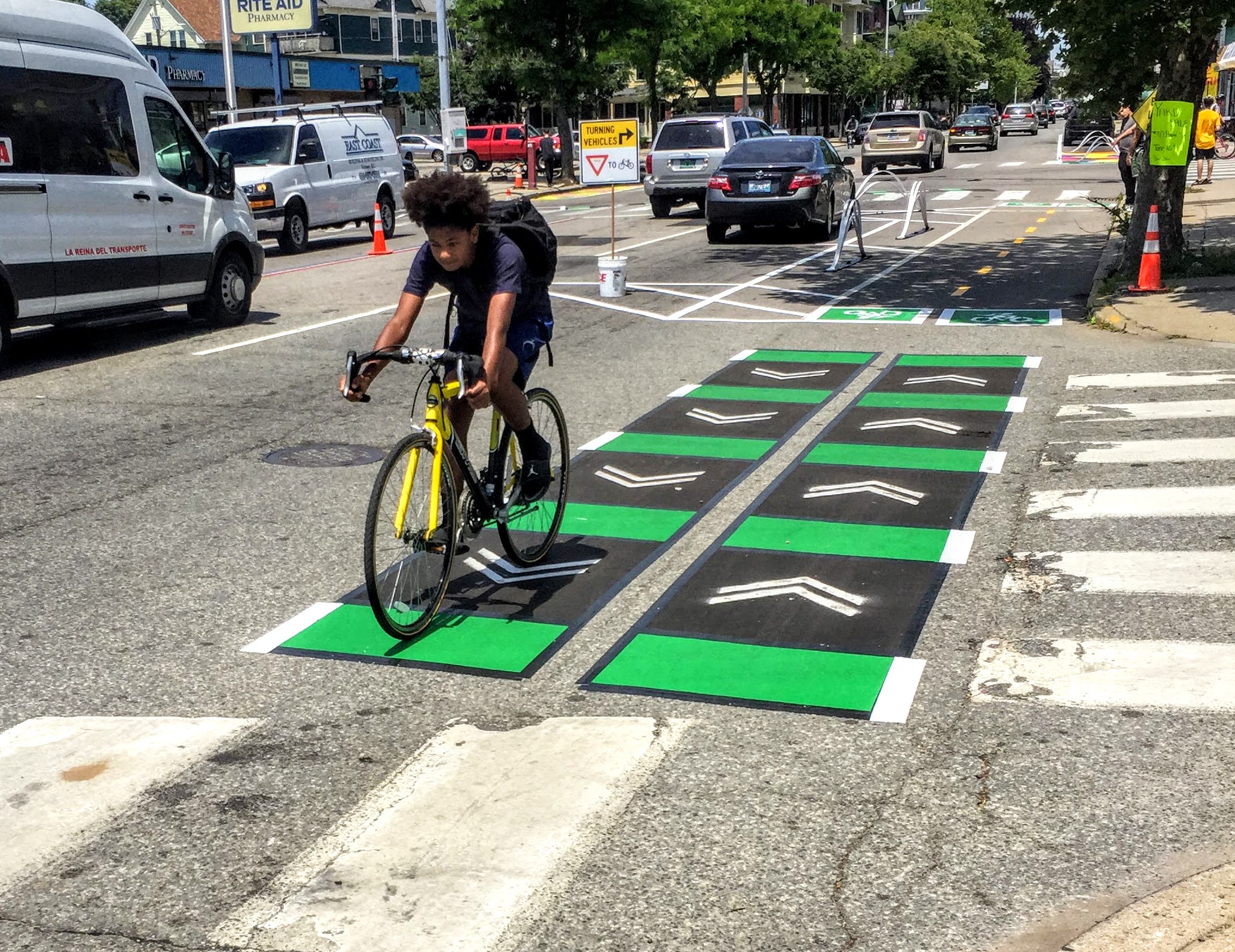Almost one dozen biking and walking projects across the state of Rhode Island are in jeopardy after a state agency decided to transfer $27 million in federal money dedicated to active transportation to highways and administrative expenses over the next 10 years.
The money represents about 33 percent of the tiny pool of funding the Rhode Island Department of Transportation receives from the feds for walking and biking.
The state blamed the changes on a state law that requires roads to be in a "state of good repair." "We must use our limited funds for vital safety concerns [like] structurally deficient bridges," the agency said in a statement.
Rhode Island bridges have been ranked worst in the nation. But they're hardly the most immediate safety threat. In the last decade, 127 people have been killed while walking in the Ocean State and 10 were killed while biking. Zero people have been killed by falling bridges.
The Rhode Island Bicycle Coalition said the state has increased spending for a highway interchange project in Cranston, House Speaker's Nicholas Mattiello's district, as well as to add some highway tolling infrastructure. In addition, RIDOT also wants to double the amount of money it spends on "legal" expenses, for reasons that are unclear. (The agency has not responded to Streetsblog).
The transfer will rob funding from City Walk, the innovative on-road trail project underway in Providence aimed at increasing walking and biking rates and improving safety. Other trail projects, some of which provide the only safe connection for people on foot or bike, may be delayed or scrapped altogether.
The move comes when the Bicycle Coalition and other stakeholders were actually expecting the state to make a big policy commitment to encouraging walking and biking.
"We’re extremely disappointed," said Sarah Mitchell, board chair of the Rhode Island Bicycle Coalition. The coalition is in the midst of a campaign aimed at fighting the changes. "These cuts aren’t really being equally distributed. Nearly every single bicycle project is being cut, delayed or eliminated.
"It feels like they’re deliberately targeting these projects," Mitchell added.
Another project that appears to be in trouble is the extension of the South County Bike Path, which would extend from the University of Rhode Island to — it was hoped — Narragansett Town Beach.
“RIDOT dragged its feet, even as the Town of Narragansett voted three times in support of the extension," David Smith of the Friends of the William C. O’Neill South County Bike Path, said in a statement. "In 2018, RIDOT still did nothing, and now proposes arbitrarily changing the route, slashing the funding, and delaying the project further.”






